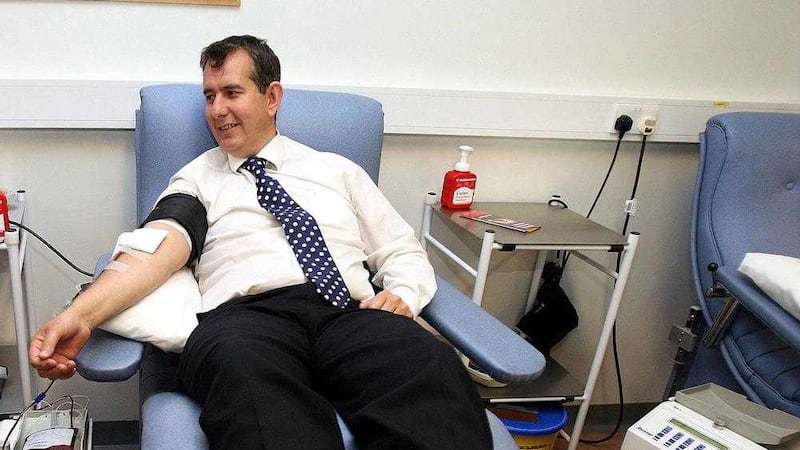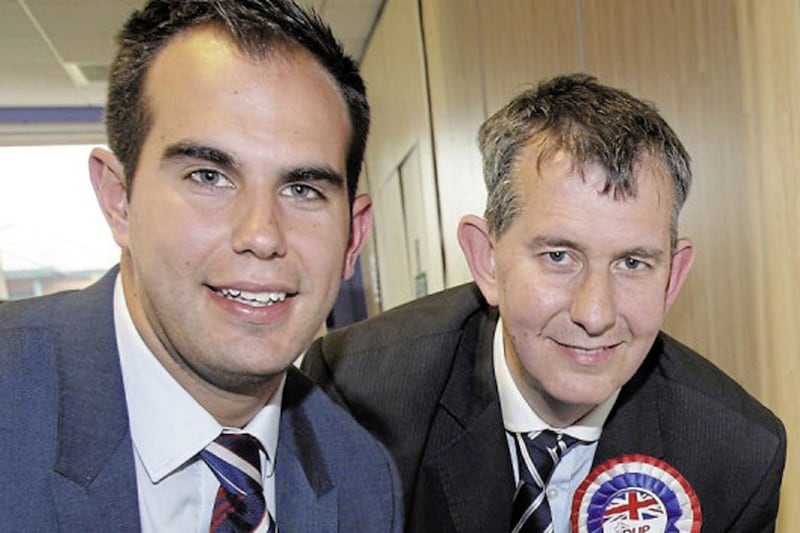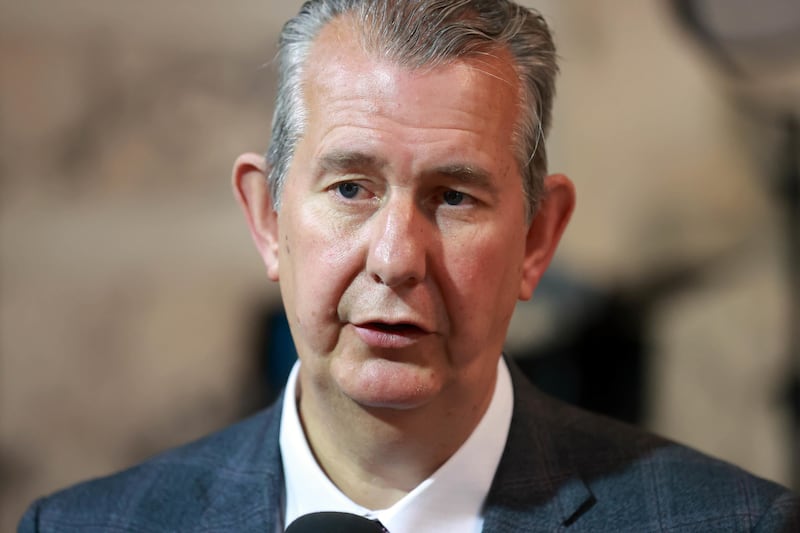A gay man is to take his legal challenge to the ban on homosexual blood donations in Northern Ireland to the UK's highest court.
Earlier this year former health minister Edwin Poots won his appeal against findings that his prohibition was irrational and infected by apparent bias.
Senior judges in Belfast also held there was no basis for concluding that the decision was predetermined by his Christian beliefs.
They further ruled that it was up to Stormont, rather than the British Health Secretary, to decide when gay men can give blood.
But their verdict is now to be scrutinised by the Supreme Court in London.
The case is being continued by a gay man who launched proceedings against the ban on donations from men who have sex with men four years ago.
Granted anonymity in the case, his legal team returned to the Court of Appeal today seeking permission to take their case further.
Although Lord Chief Justice Sir Declan Morgan refused leave, he indicated the Supreme Court may nevertheless identify points it would want to explore.
On that basis lawyers are to petition judges in London for a hearing.
A solicitor for the gay man said: "We believe there are arguable points of law of general public importance which should be considered by the UK Supreme Court.
"We will be making an application directly for permission to appeal."
The gay blood ban, put in place during the 1980s AIDS threat, was lifted in England, Scotland and Wales in November 2011.
It was replaced by new rules which allow blood from men whose last sexual contact with another man was more than a year ago.
But Mr Poots maintained the prohibition in Northern Ireland on the basis of ensuring public safety.
Findings were originally made against him in a judicial review sought by the homosexual man, referred to as JR65.
A High Court judge held that the DUP MLA did not have the power to keep the lifetime ban.
Appeals to the verdict were continued by Mr Poots' DUP ministerial successors and the British Health Secretary Jeremy Hunt.
Attorney General John Larkin, representing the Department of Health, had argued that JR65 has no personal interest in the case because he was paid for sex.
Questioning the man's legal standing in the case, Mr Larkin contended that he would be barred anyway because of the cash transaction and a further failure to comply with a 12-month celibacy rule.
Mr Poots was entitled to go against the rest of the UK on the issue, with devolved powers giving Stormont ministers the right to take a different view, he argued.
Counsel for JR65 claimed, based on evidence, that lifting the total ban would increase the risk of a contaminated donation getting through just once every 15,000 years.
According to their case Mr Poots' acted irrationally in maintaining the prohibition because the threat was "infinitesimal".
They argued that his decision was a "knee-jerk reaction" which went against the advice of his officials and experts.
In March the Court of Appeal rejected the assessment that Mr Poots' stance was irrational, based on apparent bias or predetermined by his Christian beliefs.
Judges also concluded by a 2-1 majority that the current maintenance of the lifetime prohibition was not disproportionate or contrary to EU law.
Sir Declan held that Mr Poots' maintenance of the permanent ban for a period of years after receiving advice from a blood safety advisory committee was unlawful.
But his two judicial colleagues disagreed with his view, concluding that it was a situation where a decision has not yet been made by the minister.
Now, however, the case is set to be considered by the Supreme Court.
It was also confirmed that the Department of Health is to be awarded costs in the proceedings.







